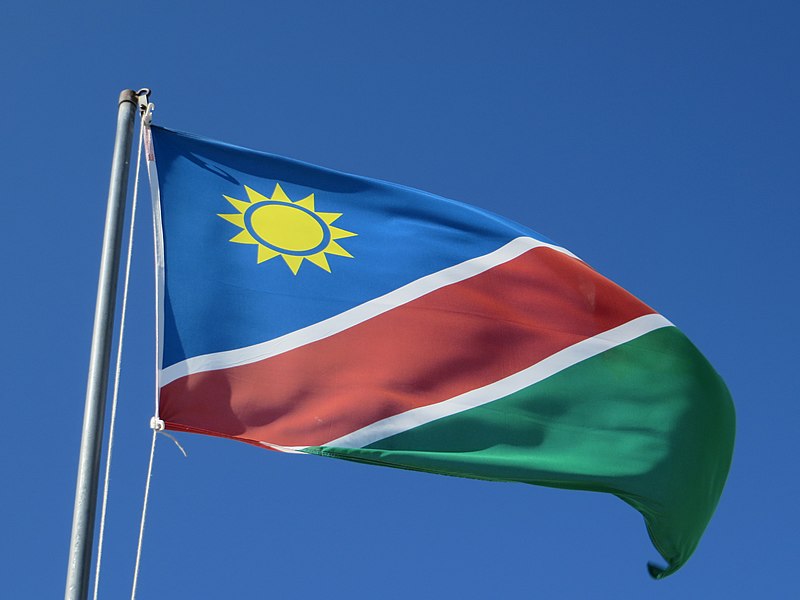Namibia’s journey from apartheid-era rule to a stable democracy is a powerful story of resilience, international solidarity, and the triumph of the human spirit in the face of adversity. This transition not only reshaped the country’s political landscape but also served as a beacon of hope for many African nations that were struggling with the legacies of colonialism, segregation, and systemic inequality. This article explores the key events and pivotal moments that led to Namibia’s emergence as a democratic nation, the challenges it faced, and the successful transition that laid the foundation for its current political stability.
A Divided and Oppressed Nation: Namibia Under South African Rule
Namibia, known as German South West Africa under German colonial rule, became a mandate of South Africa after World War I. The League of Nations granted South Africa administrative control over Namibia, with the condition that it would help guide the region toward self-governance. However, South Africa used Namibia primarily as an extension of its apartheid policies and interests, effectively treating it as a colony. Under the 1948 apartheid regime, South Africa imposed its racial segregation laws on Namibia, marginalizing the indigenous black population and forcing them into reserves.
For much of the 20th century, the indigenous people of Namibia, particularly the Herero, Damara, Nama, and Ovambo ethnic groups, lived under severe political, social, and economic oppression. Black Namibians were excluded from political participation and denied basic human rights. The South African government encouraged the establishment of a system that favored white settlers while denying equality and justice for the vast majority of Namibians.
In the 1960s, resistance movements began to form, with the most significant group being the South West Africa People’s Organization (SWAPO). SWAPO, founded in 1960, became the leading political and military force fighting for Namibia’s independence. The struggle for freedom was long and hard-fought, with SWAPO’s armed resistance escalating throughout the 1960s and 1970s, despite facing opposition from South African forces, who sought to maintain control over the country.
The Role of International Pressure and the United Nations
The path to Namibia’s independence was marked by a combination of internal resistance and growing international pressure. Over time, Namibia’s struggle for freedom gained global recognition. The United Nations (UN) was pivotal in the quest for independence, with the General Assembly passing resolutions in the 1960s calling for the decolonization of Namibia and condemning South Africa’s occupation.
In 1971, the International Court of Justice (ICJ) ruled that South Africa’s administration of Namibia was illegal, ordering the country to withdraw its forces. However, despite this ruling, South Africa refused to relinquish control. The international community, including countries in Africa, Europe, and the United States, put increasing diplomatic and economic pressure on South Africa to end its occupation.
In 1978, after decades of resistance and growing international isolation, South Africa agreed to a UN-sponsored peace plan, known as Resolution 435, which outlined the steps for Namibia’s transition to self-rule. This plan called for the holding of free and fair elections under UN supervision and laid the groundwork for Namibia’s future independence.
The Road to Independence: UNTAG and Free Elections
The major breakthrough came in 1988, when a tripartite agreement was signed between South Africa, SWAPO, and the United Nations. This agreement, known as the Tripartite Accord, ended the longstanding conflict and set the terms for Namibia’s transition to independence. The deal led to the establishment of the United Nations Transition Assistance Group (UNTAG), which would oversee the process of demobilizing South African troops and organizing Namibia’s first free and fair elections.
The elections were held in November 1989, with the participation of 12 political parties. It was a defining moment for Namibia, as it marked the first time in history that all citizens, regardless of race, could vote in a national election. The election was overseen by international observers, ensuring that the process was transparent and free from interference.
SWAPO emerged victorious, securing a majority in the newly formed Constituent Assembly, which was tasked with drafting Namibia’s first democratic constitution. The Democratic Turnhalle Alliance (DTA), the main opposition party backed by South Africa, also participated in the elections and secured a significant number of seats. The peaceful election results were hailed as a success for Namibia and demonstrated the country’s commitment to democracy and reconciliation.
Namibia’s New Constitution: A Foundation for Democracy
One of the major achievements of Namibia’s transition to democracy was the creation of a new constitution, which was adopted on March 21, 1990, the day Namibia officially became an independent nation. The constitution was hailed as one of the most progressive in Africa and remains a cornerstone of Namibia’s democratic system today.
The document guarantees fundamental human rights, including freedom of speech, assembly, and religion. It also establishes a multi-party democracy, ensuring that all political parties, regardless of their background, have the opportunity to participate in the political process. The constitution’s emphasis on equality, non-discrimination, and the rule of law has contributed to the country’s political stability and inclusivity.
One of the most significant aspects of Namibia’s constitution is its commitment to reconciliation. The founding principles of the country focused on healing the wounds of the past, especially in the aftermath of apartheid and colonialism. The country adopted a policy of national unity, ensuring that all ethnic groups had a voice in shaping the nation’s future. This approach allowed Namibia to avoid the deep divisions that plagued other African countries during their transitions to independence.
Challenges in Transition: Social and Economic Hurdles
Despite the political triumphs of Namibia’s transition, the country faced numerous social and economic challenges in the early years of its independence. The country inherited a highly unequal society, with the white minority holding significant economic and land ownership advantages. Much of the population, particularly black Namibians, lived in poverty, with limited access to basic services such as education, healthcare, and infrastructure.
The government, led by SWAPO and the newly elected president Sam Nujoma, worked to address these disparities through policies aimed at improving the living conditions of the black majority. Land reform was one of the key priorities, although the process faced significant hurdles due to the high concentration of land in the hands of a few white landowners. Additionally, Namibia’s economy was highly dependent on natural resources, particularly mining, and faced challenges in diversifying into other sectors.
Despite these challenges, Namibia has made significant strides in its development. The country’s strong democratic institutions, commitment to human rights, and economic growth have helped it maintain political stability. Namibia’s success in building a peaceful democracy stands as an inspiration to other African nations that have struggled with similar historical legacies of apartheid and colonialism.
Namibia’s Democratic Achievements
Since its independence, Namibia has established itself as one of Africa’s most stable democracies. The country has consistently held free and fair elections, with regular transfers of power between democratically elected leaders. Namibia’s political environment is characterized by the peaceful coexistence of multiple political parties, respect for the rule of law, and the protection of human rights.
Namibia’s achievements in democracy and good governance have earned it recognition on the global stage. It is often seen as a model for countries in transition, particularly in Africa. The country’s commitment to peaceful conflict resolution, national unity, and social justice has contributed to its reputation as a successful example of post-colonial state-building.
Namibia’s transition from apartheid to democracy is a remarkable story of struggle, resilience, and achievement. From its early years under colonial rule to its bitter fight for independence, Namibia has endured immense hardships. However, through the determination of its people and the support of the international community, it emerged as a stable, peaceful, and democratic nation. Namibia’s journey serves as a testament to the power of self-determination and the resilience of those who fight for freedom and equality. Today, Namibia stands as a beacon of democracy in Southern Africa and a model for other nations that aspire to overcome the legacies of apartheid and colonialism.
Join 'Namibia Today' WhatsApp Channel
Get the breaking news in Namibia — direct to your WhatsApp.
CLICK HERE TO JOIN












